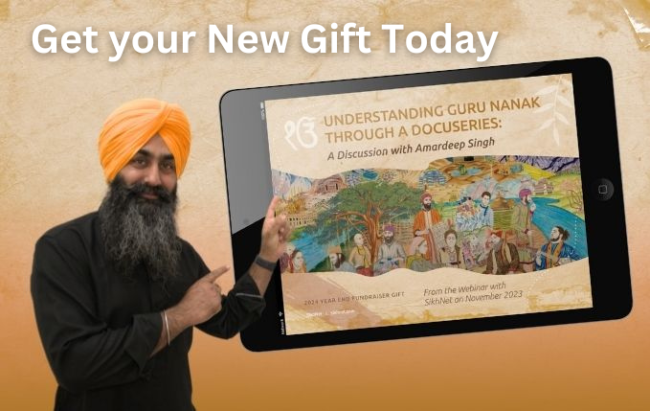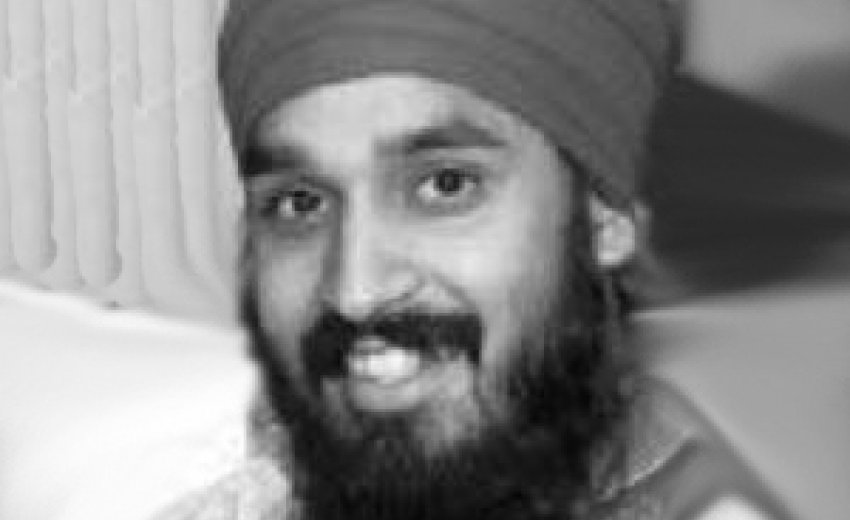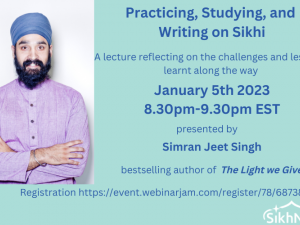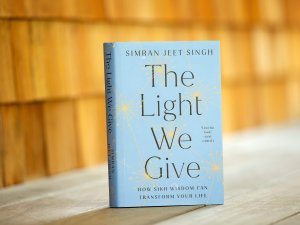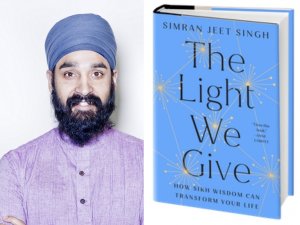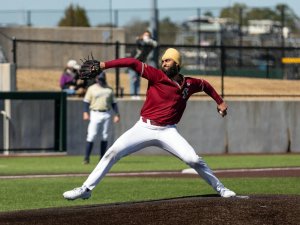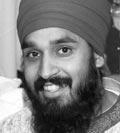 Sometimes, I'm not totally sure who I am.
Sometimes, I'm not totally sure who I am.
Not in the crazy, lost my mind kind of way.
And not in the spiritual or philosophical kind of way either.
What I mean is that I don't always know how to categorize myself.
New Yorker? American? Indian? Punjabi? Texan? Sikh?
In most cases, I don't struggle with these sorts of labels.
I'm well aware that general terms like this don't come close to capturing our particularities. I also understand that, like everyone else, I'm a unique combination of "all of the above."
Sometimes, though, we're forced to select one of our multiple identities, and that's when things get a little messy.
I was put into this sort of position just a couple weeks ago, and it's been pretty challenging for me.
To make a long story short, I was invited to be a representative at the Parade of Nations for the 2011 ING New York City Marathon. It's a huge honor, and the organizers were gracious enough to offer me the option of either serving as a delegate for the country of my birth (USA) or the country from which my parents immigrated (India).
While I feel extremely fortunate and humbled to have been selected, I also feel uncomfortable in having to choose between my national identities. I've never really had to make this decision so publicly before.
Indian or American? How could I choose?
Initially, I found myself leaning towards my American identity. I was born and raised in San Antonio, and even though I don't fit the profile of a typical Texan (10-gallon turban anyone?), it seems natural to me that I'd identify with America more than any other country.
As I thought about it a bit more, I weighed the pros and cons of representing India.
On the positive side, I figured I'd be more noticeable since the pool of Indians is so small. (South Asians aren't exactly known for being world-class athletes, so it probably doesn't come as a surprise that only a handful of us are running in the ING New York City Marathon.)
I also feel a connection with South Asia as the homeland of my parents, native language and religious tradition.
On the other hand, however, I would feel extremely uneasy representing a country like India that has demonstrated a consistent willingness to support and perpetrate human rights violations against its own citizens.
Space is limited here, so I'll just draw on a timely example that comes from the community I know best--the Sikhs.
On Oct. 31, 1984, the Prime Minister of India was assassinated by her two Sikh bodyguards. In response to this assassination, mobs swarmed the capital city of New Delhi and started hunting down Sikh civilians. Eyewitness accounts report that the mobs were led by government officials, who incited the crowds and provided them with weapons and addresses of Sikh household and business.
The mob violence continued unabated for three days following the assassination of Prime Minister Indira Gandhi and by the time the police finally intervened, thousands of innocent Sikhs had been killed.
Independent inquiries have clearly demonstrated the Indian Government's complicity in the mob violence, and with the help of first-person accounts, they have identified a number of elected officials who were directly involved in organizing the pogroms.
However, more than a quarter-century has passed and not a single person has been held accountable for the violence that India unleashed on its own citizens.
It's shocking that there are strong cases against three government officials--Jagdish Tytler, Sajjan Kumar, and Kamal Nath--yet each of them has been gradually climbing the professional ranks since participating in these atrocities.
It's even more eye-opening when one realizes that this isn't just a one-time thing. It's a pattern.
The Government of India consistently perpetrates and condones major human rights violations against its own citizens, and instead of punishing the leaders responsible for their crimes, it rewards them.
How could I allow myself to represent a country like that?
The United States is hardly in the same class as India, a country that's been described by Human Rights Watch as having "significant human rights problems."
I'm not saying the U.S is perfect. I don't agree with all of our political decisions, and I also realize that we're not entirely clear of human rights violations. There's a lot that can be improved.
Yet I find that the values and ideals of my religion, Sikhism, resonate more closely with those of America. Like the Sikh religion, the U.S. is founded on freedom, equality and justice. This is the appeal of America and it's precisely why my parents immigrated here.
Thinking through all this has helped me develop a deeper appreciation of how fortunate and proud I am to be American. It's also become increasingly clear to me that I don't identify with the Indian State.
To be totally honest, I don't totally buy into the whole nationalism thing. While it allows us to connect with others who belong to the same group, it also causes us to distinguish ourselves from people of other groups.
This distinction causes for a different kind of nation--alienation--and that's where things don't sit well with me. I don't buy the assumption that people are more valuable because they belong to a particular nation. For example, I don't believe that the life of an American is worth more or less than any other human life.
I'm proud to be American, but not at the expense of dehumanizing others.
I guess some people might think I'm taking things too seriously, and I'm sure that most people don't really care whether I serve as a delegate for the U.S. or India at the ING New York City Marathon's Parade of Nations.
But it matters to me, and I can't help but think that these issues are of global importance.
Just making a tiny bit of difference in the world, for me, would make all the difference in the world.
Simran Jeet Singh is a doctoral student in the Department of Religion at
Columbia University. His interests span devotional traditions of early
modern South Asia and his dissertation research focuses specifically on
the life and memory of Guru Nanak as it has been recorded in the Puratan Janamsakhis.
Simran received his B.A. in Religion and Literature from Trinity
University, an M.T.S. with a concentration in South Asian Religions from
Harvard Divinity School and an M.A. in South Asian Languages and
Literatures from the Department of Middle East and Asian Languages and
Civilizations of Columbia University.
Simran lives in Manhattan with his wife, Gunisha Kaur, and the two of
them enjoy exploring the world together. He grew up in San Antonio,
Texas, where he developed his love for the Spurs, warm weather and
Mexican food. Simran enjoys working on educational and charitable
projects, and he is currently training for the New City Marathon.
